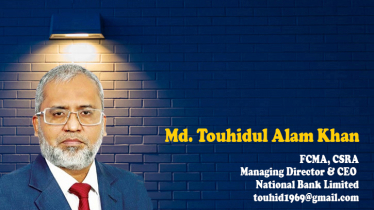
Multifarious problems exist in the secondary and higher secondary educational institutes while the standard of education is being hampered badly for ages. Though the department of education is leaving no stone unturned to bring about massive change or boosting in the sector of education the cherished out put is not achieved.
Although the government is undertaking heart and sole to make nation people all educated the aim of it is not being implemented perfectly because the following crises have been existing unscanned.
Any stern official ordain, action, decision etc can’t be implemented by the upazila or district wise education officers. As, in the upazila or district wise officers have no power to exercise any legal and stern rule sans the direction of the higher authority and as such it is not possible to materialize many government orders with a view to creating the improvement of education.
In the secondary and higher secondary schools, colleges and madrasas, good education has been being hampered for want of necessary man power. So it is quite impossible to control or supervise all the upazila or district academic institutes precisely.
The concerning education officers find no way out to keep surveillance on all the institutes and however they are just any how dragging load of their duties, which is just to skim through the responsibility while again many officers are seen to remain refrain from the supervision of the institutes.
Another thing is that there is a tremendous gap among the government and non government schools, colleges and madrasas.
Though the government educational institutes are enjoying all kinds of facilities like the adequacy of teachers, infrastructure and handsome salaries, the same of the non government have been getting scanty of advantages in comparison with the first mentioned institutes. Besides, the institutes have teach 150 to 200 or more students in one class where in the government ones the teachers teach sixty or seventy students that are many times less than those of the non government institutes. By equalizing this kind of indiscrimination the government may reach the goal post of education.
In non govt. institutes, the power of appointing teachers and other staffs is in the hand of school managing committee. So, skilled or expert teachers cannot come here because of the authority’s malpractices of power and partiality. The managing committee members very often try to give appointment to those who are either their relatives or allegedly they give appointment to those from whom they get large amount of bribe in cash.
Though in respect of a teacher’s appointment, there is the rule that to be a secondary teacher one must have graduation degree with B.Ed, in many institutes illiterate or half educated or professionally drivers, rickshaw pullers, shop keepers and so on become the members of the institutes that is a non prestigious matter. It is a fact that those institutes are doing better where the members of the managing committee are literate. At present graduate degree holder persons are available in the country so is quite no prestigious for the department of education to include illiterate people in the managing committee.
There is no promotion system in non government institutes and so when the post of a head master or an assistant head master falls vacant; it remains unfilled for years hampering the speed of education. Besides since there is no transfer system in the non government institutes many teachers establish stronghold of their caprice and don’t care to commit any negligence in teaching the students because none can transfer them to elsewhere while the learners are deprived of cherished education.
Different schools follow different syllabus, question papers, guide books and examination time table. It is a bad vogue of educational institutes that create indiscrimination in the sector of education.
Many unskilled teachers are employed in the non government schools, colleges with madrashas for which the appointed teachers can not teach in classes meticulously. Bengali teachers teach English or mathematics, and English teachers have to teach Bengali or any other subjects. Besides, in the rural areas students are given lesson by many guest teachers who are mostly college students or vagrant and have no quality to teach the students precisely. Rather they create the bad environment of private teaching by adulating the students, managing bodies or by hoodwinking them tactfully and earn money while the learners are silently cheated.
This kind of haphazard teaching has been damaging the learners’ carrier and they are not being built up as per their merits.
In primary schools, students are not built up perfectly. So, when they come to high schools, they are found badly weak in all subjects. Even many students allegedly are found devoid of A B C. As a result, despite the utmost endeavor of the secondary teachers they cannot build them up to the mark and when these students, anyhow, by hurdling the SSC exam, go to college become frustrated.
Almost all of the teachers of both government and non government college are prone to private teaching. They are reluctant to give earnest lesson in their classes and take the students to their private centers by applying technical policy while poor students are not getting education in classes. It is alleged by the students and guardians that many college teachers after taking one or two classes leave the station and go to their private centers breaching the code of service dauntlessly.
It cannot be said that the non govt. teachers are solvent enough alike those of govt. ones. When talked with some non- govt. teachers they don’t get necessary amount of salaries, increment, bonus, house rents etc like the govt. teachers, they, to maintain their families, become bound to practice private teaching honestly.
There is no specific rule in nationalizing any school. Generally city schools are nationalized. But in rural areas though many renowned schools have considerable eligibility for being nationalized they are not getting the chance of being state-owned. This should be kept under carpet.
Many guardians are so abstracted or indifferent to their wards to take care of their children. As a result too many students remain absent from classes or play truant from schools and colleges and at one stage they drop out of the academies. So the teachers and the guardians should be made bound by imposing rule so that hundred percent of the boys and girls may be present in the academies.
Different schools introduce different syllabus for the students. So for want of unilateral question papers, syllabus there happen indiscrimination among the institutes. Question papers vary form school to school, college to college and madrasha to madrasha that create detrimental distinction.
Objective type questions are very useful for the students. It makes the students bound to read books from top to bottom and they automatically have to study the ins and outs of the whole book. But as a result of no objective questions in English, students feel reluctance to read English books from first to last. As a result they do not know various aspects of English grammar and in the aftermath they become shamelessly weak in English.
Students have to read a lot of books and they have to complete unreasonable lengthy syllabus. So they become disheartened to see the heap of syllabus and study only a few suggested parts given by their teachers.
Translation and passage is a practicing sphere of English. As students do not practice translation and passage at present, their ability of speaking and off hand writing is intensely decreasing.
Again, as the consequence of displaying attractive TV programs like magazine, cinema, drama, football, cricket and what not during the day or school time, make the students sitting before TV. They do not go to school or reading table. Many students flee away from schools at leisure period to enjoy cinema and thus they are going to the dog day by day.
Secondary school syllabus is changed frequently. A teacher becomes skilled in any syllabus in one year, next year it is changed while he loses his previous skill and has to be skilled again. It is obviously detrimental to both the teachers and the students English is an international subject. A good English knowing student may shine in life. But it is a matter of regret that in many schools English teachers themselves can not teach or speak in English satisfactorily or cannot read English newspaper, magazine, and good English grammar written in English. Consequently, they cannot build up expert students and just nominally continue classes befooling the innocent learners.
According to the government rule, 10 percent boys and 30 percent girls of per class shall be given stipend on condition of their 75 % presence in the class and 45% marks in the annual exam. But for the interference of managing committee members or adamant guardians’ pressure the criteria can’t be followed by the teachers and again some teachers adopt unfair means in enlisting eligible students for stipend is alleged. As a result good students are not getting the stipend and thus they are being discouraged.
When a company audit team comes to audit any institute, they do not look into the ins and outs of official documents and the school authorities manage the audit teams offering hush money. Again when any ministry audit team comes, it finds out all faults of company audits and demands heavy amount of money from schools while the school by giving token makes the audit report Okayed. In this way schools, colleges and madrashas have been being run concealing corruptions and degrading the standard of the institutes very silently is an open secret.
At present the result of SSC, HSC and degree exams are evaluated as per percentages. So to hold good the percentage of results many school and college authorities disallow a lot of students who study many years at a stretch and enjoy regular stipend from the government. Now, there arises question, if they are disallowed in the test exam, how can they get stipend and can it be said that they get 45 percent marks and 75 percent attendance in the lower classes? Or doesn’t it prove that the teachers commit unethical act for their own interest?
It is to be mentioned, if 20 students of a school sit for the SSC exam and if all of the 20 pass, then it is called 100 percent passed. But when two hundred students of a school appear at the exam and if 150 of them pass, then it is considered as a bad result. But it should be deliberated which school contributes the country by number or by more passed students. Of course the answer will easily come that the second one. Whereas the two schools certainly enjoy the same facilities from the govt. Firstly mentioned school make only 20 students educated but the second school made 150 educated students.
Therefore, it will not be unreasonable to say that the results of the exam should not be evaluated by percentage but by number. That is, the more an institute makes students pass, the more it should be evaluated as the best. Then all institutes will try their best to allow more and more students with competition and thus many students will get rid of the curse of drop out after studying many years consecutively and the target of the government to make cent percent people educated certainly be fulfilled.
At last the authority is urged to look into the problems of the academic sector and come to a logical solution in order to establishing a stationary resolution.
Messenger/Tushar








